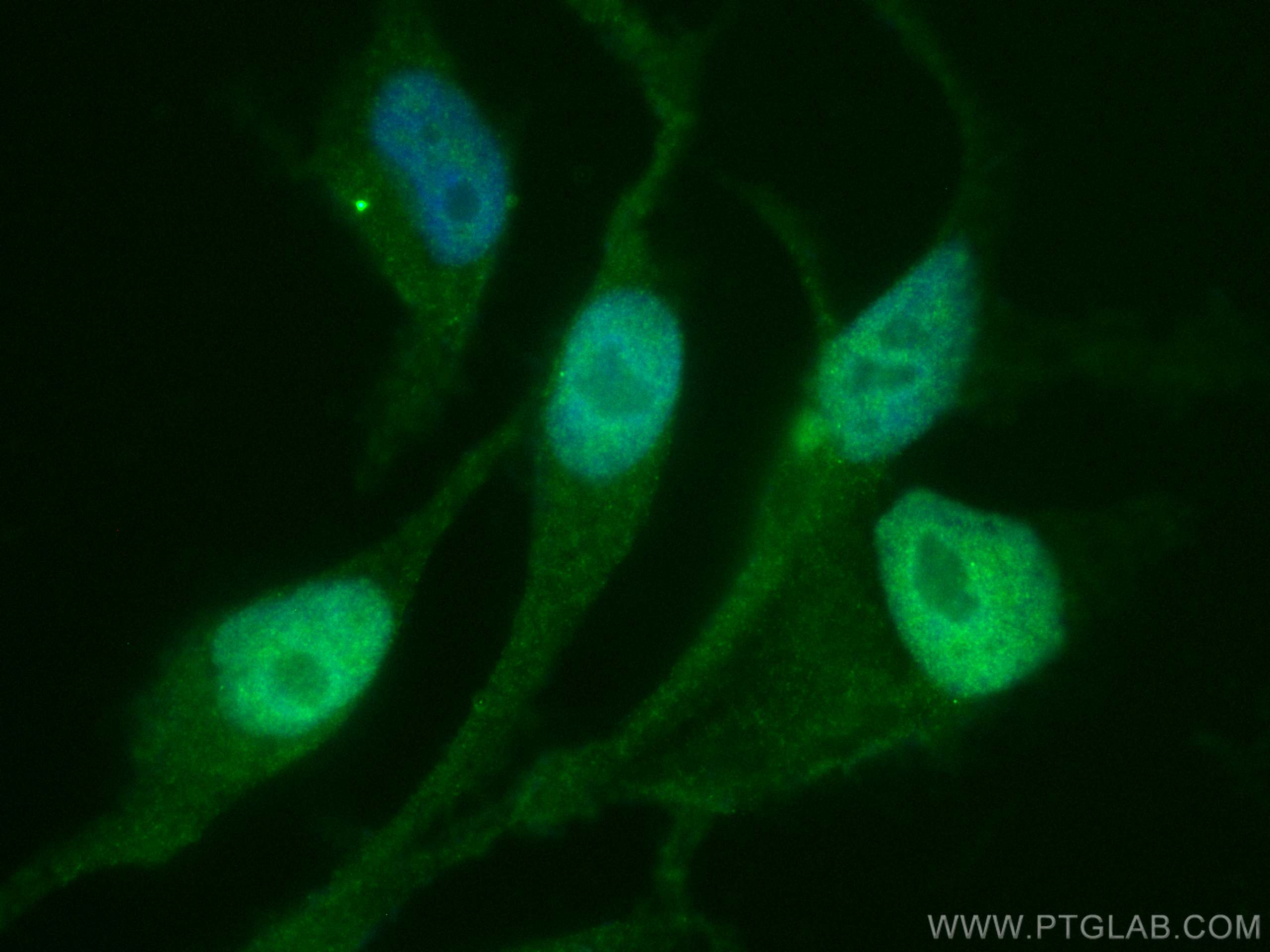Anticorps Monoclonal anti-AR
AR Monoclonal Antibody for IF
Hôte / Isotype
Mouse / IgG2a
Réactivité testée
Humain
Applications
IF
Conjugaison
CoraLite® Plus 488 Fluorescent Dye
CloneNo.
1F7C12
N° de cat : CL488-66747
Synonymes
Galerie de données de validation
Applications testées
| Résultats positifs en IF | cellules LNCaP, |
Dilution recommandée
| Application | Dilution |
|---|---|
| Immunofluorescence (IF) | IF : 1:50-1:500 |
| It is recommended that this reagent should be titrated in each testing system to obtain optimal results. | |
| Sample-dependent, check data in validation data gallery | |
Informations sur le produit
CL488-66747 cible AR dans les applications de IF et montre une réactivité avec des échantillons Humain
| Réactivité | Humain |
| Hôte / Isotype | Mouse / IgG2a |
| Clonalité | Monoclonal |
| Type | Anticorps |
| Immunogène | AR Protéine recombinante Ag17291 |
| Nom complet | androgen receptor |
| Masse moléculaire calculée | 914 aa, 99 kDa |
| Poids moléculaire observé | 110-120 kDa |
| Numéro d’acquisition GenBank | BC132975 |
| Symbole du gène | AR |
| Identification du gène (NCBI) | 367 |
| Conjugaison | CoraLite® Plus 488 Fluorescent Dye |
| Excitation/Emission maxima wavelengths | 493 nm / 522 nm |
| Forme | Liquide |
| Méthode de purification | Purification par protéine A |
| Tampon de stockage | PBS avec glycérol à 50 %, Proclin300 à 0,05 % et BSA à 0,5 %, pH 7,3. |
| Conditions de stockage | Stocker à -20 °C. Éviter toute exposition à la lumière. Stable pendant un an après l'expédition. L'aliquotage n'est pas nécessaire pour le stockage à -20oC Les 20ul contiennent 0,1% de BSA. |
Informations générales
AR, also named as DHTR and NR3C4, belongs to the nuclear hormone receptor family and NR3 subfamily. AR is a ligand-activated transcription factors that regulate eukaryotic gene expression and affect cellular proliferation and differentiation in target tissues. Transcription factor activity is modulated by bound coactivator and corepressor proteins. AR is activated, but not phosphorylated, by HIPK3. Defects in AR are the cause of androgen insensitivity syndrome (AIS), previously known as testicular feminization syndrome (TFM), which is an X-linked recessive form of pseudohermaphroditism due end-organ resistance to androgen. Defects in AR are the cause of spinal and bulbar muscular atrophy X-linked type 1 (SMAX1) which also known as Kennedy disease. Defects in AR may play a role in metastatic prostate cancer. Defects in AR are the cause of androgen insensitivity syndrome partial (PAIS) which also known as Reifenstein syndrome. AR exists various isoforms with MV 110-120 kDa and 75-80 kDa. (PMID: 19244107 )
Protocole
| Product Specific Protocols | |
|---|---|
| IF protocol for CL Plus 488 AR antibody CL488-66747 | Download protocol |
| Standard Protocols | |
|---|---|
| Click here to view our Standard Protocols |


